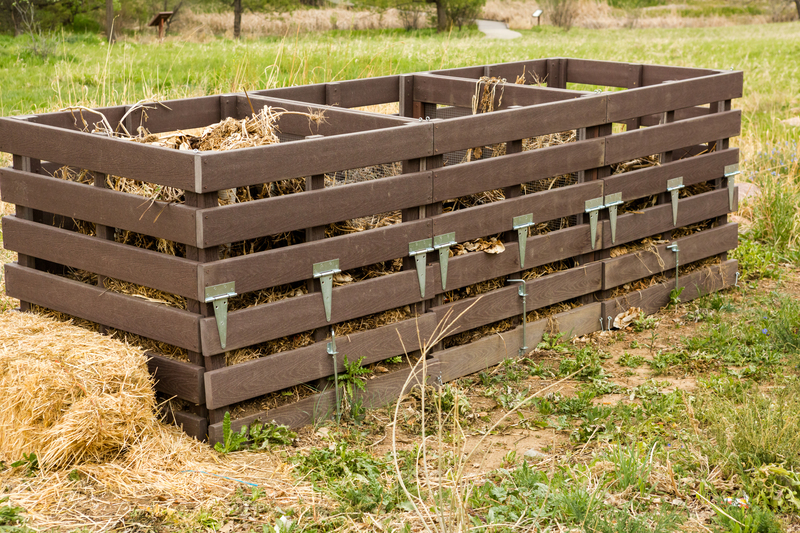Epochs of Waste Handling: From Then to Now
Waste handling has undergone a remarkable transformation throughout human history. From the rudimentary methods in ancient settlements to today's sophisticated technologies, waste management practices reflect evolving societies, technologies, and environmental consciousness. In this comprehensive article, we'll delve into the epochs of waste handling, uncovering how previous generations coped with waste, how new ideas shaped modern systems, and what the future holds for sustainable disposal and recycling.
The Dawn of Waste Handling: Ancient Solutions
Prehistoric Societies and Natural Decomposition
Our ancestors' waste disposal methods were dictated by practicality and necessity. Early humans produced minimal waste--primarily organic, including food scraps and tools made from stone, bone, or wood. Such materials decomposed naturally, leaving little trace.
- Nomadic Tribes: Carried little, left biodegradable materials behind
- Settled Communities: Developed simple pits or middens for disposing of waste
Early Urbanization: The Birth of Waste Accumulation
As communities settled and populations grew, so did the challenges of waste handling. The rise of villages and cities from Mesopotamia to the Indus Valley shifted waste from an afterthought to an everyday problem.
- Ancient Greece & Rome: Built early sewer systems like Rome's Cloaca Maxima, transporting sewage away from urban zones
- Indus Valley Civilization: Designed advanced drainage and covered waste systems, prioritizing public health
- Ancient China and Egypt: Developed pit latrines and the use of animal waste in agriculture

The Middle Ages: Urban Growth & Sanitation Struggles
As European towns and Asian cities swelled, so did their municipal waste management problems. Without large-scale infrastructure, refuse and human waste often accumulated in streets, open ditches, or rivers.
- Street Cleaning: Some cities hired street sweepers or decreed regular cleanups, especially during times of plague
- Night Soil Collectors: In China and Europe, workers gathered excrement for use as agricultural fertilizer
- Open Dumps: Urban outskirts became informal dumping grounds, contaminating water and air
Public health issues led to sweeping reforms in how waste was perceived and handled. Epidemics like the Black Death underscored the link between filth and disease, prompting local authorities to introduce regulations on dumping and waste removal.
Industrialization Era: The Rise of Modern Waste Management
New Waste, New Solutions
The 18th and 19th centuries saw the explosion of cities during the Industrial Revolution. With mass-produced goods, new forms of household and industrial garbage appeared--packaging, chemical wastes, and much more.
- Sanitary Landfills: Covered refuse with soil, a vast improvement over open dumps
- Incineration: Cities like London and New York built refuse destructors to burn garbage, reducing volume but causing smoke and ash problems
- Muncipal Waste Collection: Regular garbage pickup services established, improving urban cleanliness
The Public Health Movement
As science connected unsanitary waste with diseases like cholera, legislation followed. The UK's 1846 Nuisance Removal Act and America's sanitary reforms established guidelines and funding for organized waste disposal.
Twentieth Century: New Technologies, New Challenges
Post-War Boom & Single-Use Culture
The mid-20th century introduced radical changes to waste handling methods. Plastics, synthetics, and disposable packaging transformed consumer behavior. Landfills ballooned, and litter became a visible problem.
- Waste-to-Energy: Incineration evolved into systems generating heat and power
- Recycling Initiatives: Paper drives in WWII; later, curbside recycling of glass, metal, and plastic
- Hazardous Waste Regulation: Laws passed to manage industrial toxins and nuclear waste
Emergence of the Environmental Movement
By the 1970s and 1980s, society became more aware of the environmental impacts of waste handling. Events like the Love Canal disaster and images of polluted rivers mobilized public opinion.
Governments established agencies (like the US EPA) and enacted laws such as the Resource Conservation and Recovery Act (RCRA) to regulate landfill design, promote recycling, and ensure safe transport and disposal of hazardous waste.
Contemporary Era: Sustainable Waste Management Systems
Integrated Waste Solutions
Today, advanced waste management strategies combine technology, community involvement, and government policy. The modern ideal is a circular economy, where materials constantly re-enter production.
- Sorting & Recycling Plants: Automated facilities sort and recover valuable materials from mixed waste
- Composting: Organic refuse diverted from landfills and turned into soil enrichers
- Biogas Harvesting: Anaerobic digesters recover methane from food and farm waste
- Electronic Waste Recycling: Specialized centers for safe dismantling and processing of old gadgets
*Cities like San Francisco and Seoul* have achieved high recycling rates through education, strict policies, and investment in infrastructure. In some countries, producers are held responsible for the entire lifecycle of their products, including collection and recycling.
Challenges in Modern Waste Handling
Despite advances, huge challenges remain in the 21st century:
- Plastic Pollution: Persistent plastics clog oceans and landscapes
- Landfill Capacity: Urban centers struggle to find new space for waste
- Global Inequality in Waste Services: Developing nations often lack safe, reliable disposal or recycling
- Food Waste: Millions of tons lost or discarded annually, even as hunger persists

The Digital Age and Future Epochs of Waste Disposal
Smart Waste Technologies
The latest epoch in the evolution of waste handling is being shaped by data, automation, and new scientific innovations:
- IoT Sensors: Smart bins alert collectors when full, optimizing routes and reducing costs
- AI-Driven Sorting: Robots and machine vision improve accuracy and efficiency at recycling centers
- Blockchain: Track and certify recycling streams, enhancing transparency
- Bio-innovations: Engineered enzymes and microbes break down plastics and convert waste to biofuels
Companies and municipalities are investing in zero-waste programs and circular supply chain initiatives, striving for *waste-free economies* through innovation and cooperation.
Conclusion: Lessons from the Past, Innovations for the Future
From the organic refuse of prehistoric times to the high-tech, data-driven systems of today, the epochs of waste handling tell a story of adaptation, challenge, and progress. Each era contributed vital lessons--whether in cleanliness, public health, engineering, or environmental stewardship.
To build a truly sustainable future, the world must draw on historical insights, leverage new waste handling technologies, and support policies that prioritize resource recovery, waste reduction, and global equity. Understanding the journey "from then to now" empowers thoughtful solutions for the centuries to come.
Frequently Asked Questions About Waste Handling Epochs
-
How did ancient societies handle waste?
They used simple pits, latrines, and sometimes early sewer systems. Most waste was biodegradable and naturally decayed. -
When did organized municipal waste collection start?
Large cities began organized waste collection in the 19th century, influenced by public health reforms during industrialization. -
What are modern innovations in waste management?
Smart sensors, AI-driven recycling, biogas harvesting, and zero-waste initiatives are leading the way today. -
What does the future hold for waste handling?
The future points toward circular economies, biodegradable materials, and global collaboration for sustainable resource use.
Further Reading & Resources
- EPA History: Wastes
- Evolution of Waste Management
- National Geographic: Plastic Pollution
- Britannica: Waste Disposal
By tracing the epochs of waste handling, we not only understand our past but also pave the way for a cleaner, more sustainable future.